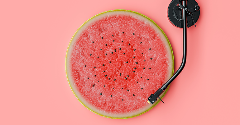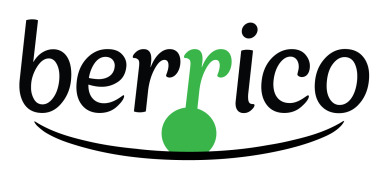News
Energy drink makers turn to botanicals for a more natural buzz
6 Aug 2018Energy drink manufacturers increasingly are looking to natural ingredients to capture market segments that have previously been overlooked, such as women and older consumers.

Energy drinks are a niche within the global soft drinks market, representing just 1% of sales, according to trade association Energy Drinks Europe. However, Western Europeans consume about 2 billion litres of energy drinks each year, and Germany leads the world when it comes to innovation in the sector. Although big brands dominate, about 30% of the market is served by small and medium sized companies.
In recent years, many energy drink manufacturers have started to move away from traditional sugar-fuelled and caffeine-charged formulations, toward less extreme ingredients that appeal to a broader audience – especially as natural ingredients have become a priority for many consumers in functional foods and drinks. Market research from Mintel suggests that a majority of consumers across Europe would like to see energy drinks made with natural colours and flavours. In Germany, 41% of consumers said they would pay more for drinks made with only natural energy boosters in a 2015 survey.
Such ingredients include natural caffeine sources as alternatives to synthetic caffeine, such as green tea, yerba mate, green coffee bean extract and guarana, which tap into consumer desire for natural ingredients while still increasing alertness. Applied Food Sciences has developed a water soluble extract from guayusa, an Amazonian leaf with high levels of antioxidants, amino acids and also caffeine.
Lower caffeine drinks look set to gain in popularity in Europe too, after the Food Information for Consumers regulation made warning labels mandatory on energy drinks that contain more than 150 mg of caffeine per litre. Manufacturers and consumers alike are looking for other ingredients for natural energy, such as ginseng, B vitamins and baobab fruit pulp.
Naturex provides caffeine-free ingredients like maca root, ginger and ginseng for use in energy drinks, and Dutch supplier Berrico is among those providing goji berries in juice form or extracts, another popular ingredient for manufacturers seeking natural options.
The market for botanicals in energy drinks looks set to expand still further as energy drinks’ target consumers mature. Those who previously turned to brightly coloured, high sugar drinks to help them party or study until the early hours are now looking for more natural ways to help them manage life with young children. Mintel has identified parents as a key demographic for energy drink makers. In the UK, for example, it found that 35% of consumers drank branded energy drinks, but this rose to 58% of parents with children under the age of five.
Related news

Retail landscape lacks nutritious and affordable food, says ATNi
30 Dec 2025
A rapid increase in modern food retail has given retailers growing influence over consumer diets, according to global non-profit ATNi’s latest assessment.
Read more
Debate over ban on ‘meaty’ names for plant-based products reaches stalemate
26 Dec 2025
The debate over a ban on plant-based products using “meaty” terms has reached a stalemate, leaving manufacturers in limbo and still facing overhauls to their marketing and packaging.
Read more
Multi-sensory food and drink products to gain traction in 2026
16 Dec 2025
Trend forecasters predict that sensory elements will play a larger role, helping food and beverage brands differentiate themselves in a competitive market in 2026.
Read more
Big appetite for M&A between European and US food and drink companies
3 Dec 2025
Persistent tariffs on EU food and beverage exports have helped drive record levels of M&A activity between European and US companies this year, according to analysis by ING.
Read more
Non-UPF Program extends certification scheme to entire food industry
30 Nov 2025
The Non-UPF Program has extended its certification scheme to the wider food sector, championing a move towards healthier consumption habits.
Read more
Lancet study links UPFs to chronic disease risk
26 Nov 2025
UPFs are consistently associated with an increased risk of diet-related chronic diseases, according to a comprehensive review of global evidence in The Lancet .
Read more
Concerns swirl around cinnamon’s compliance with EU law
25 Nov 2025
Cinnamon may be a top functional ingredient, but it needs stronger protocols to ensure it meets EU food safety laws and quality standards, say researchers.
Read more
Oat Barista: Innovation for game-changing beverages
20 Nov 2025
Oat Barista is a clean label, sustainable, and innovative drink base specifically designed to create the perfect foam in one single ingredient.
Read more
How younger consumers are redefining ingredient choices and rejecting brand loyalty
18 Nov 2025
Gen Z and millennial consumers’ preferences for transparency, functionality, and purpose are “redefining the very nature of consumption itself”, says SPINS.
Read more
Hybrid formats and flexible positioning to disrupt category norms in 2026
17 Nov 2025
Trend forecasters expect food and drink to move more fluidly across occasions, functions, and formats as consumers seek versatility, novelty, and convenience.
Read more


